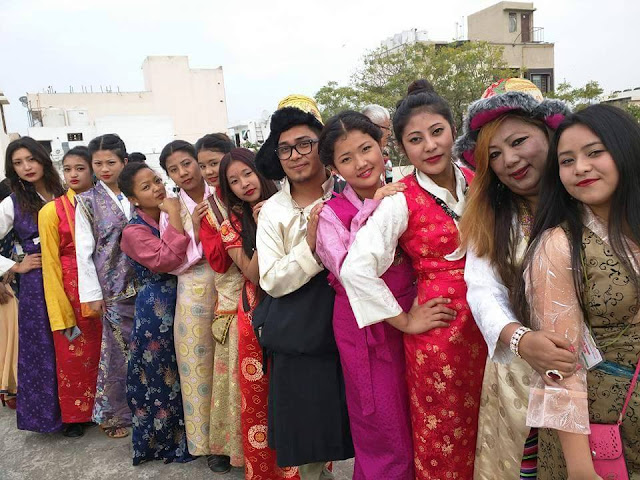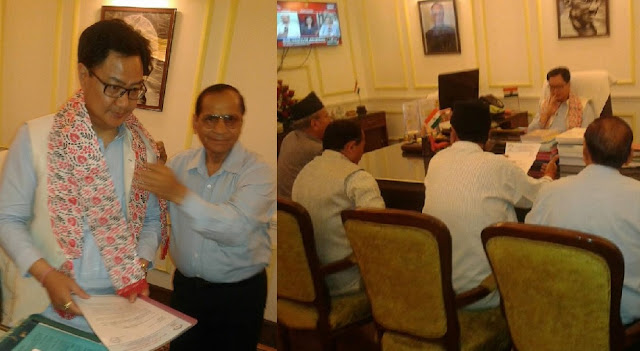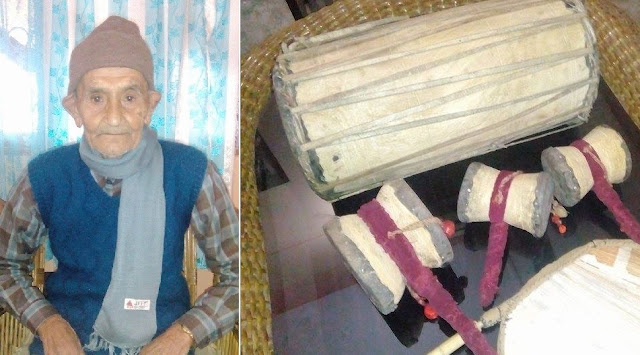Darjeeling MP Shri. S.S. Ahluwalia yesterday raised the issue of suffering and pain that the tea garden workers in Darjeeling and Dooars have to face.
Highlighting the fact that Darjeeling tea is coveted world over, Mr. Ahluwalia said, "on his recent visit of the Queen of England, our Prime Minister gifted her among other things tea from the Makaibari estate in Darjeeling. While Darjeeling tea is celebrated internationally and was the 1st agricultural product from India to be accorded a Geographical Indicator (GI) status by the WTO, the tea garden workers have continued to languish in abject poverty.
Madam I want to draw your attention, and through you the attention of the Govt of India and the Govt of West Bengal, to the plights and sufferings of the tea garden workers from my constituency of Darjeeling and the adjoining Dooars region.
Since 2002 close to 2000 tea garden workers have starved to death in these tea gardens, and this year alone over 70 tea garden workers have died due to starvation, malnutrition and related diseases. However, nothing has been done to rectify the situation, and to provide assistance to the tea garden workers."
 |
| Darjeeling MP Shri. S.S. Ahluwalia |
Mr. Ahluwalia stated that the sufferings of the tea garden workers could be directly linked to the Plantations Labor Act of 1951 which is highly feudalistic and nature and called for its amendment, he said, "Plantations across India are guided by the Plantation Labourer Act of 1951, PLA 1951 is heavily tilted in favour of the tea garden owners. So skewed is PLA towards the tea garden owners that, that under Sections 39 and 40, no courts in India (including the Supreme Court) can take any cognizance of any offence undertaken by tea garden management, and can only do so if the “complaint made by, or with the previous sanction in writing of, the chief inspector,” who in most cases is the labour commissioner.
Which means that even the courts cannot interfere against the tea garden management, unless requested to do so by the ‘chief inspectors’ which in today’s term are the ‘labour commissioners’. But the incidences of labour commissioners filling cases against tea garden owners are almost unheard of. The Plantation Labour Act as it stands today, is against the spirit of the Indian constitution and thus should be summarily amended to reflect current realities."
Highlighting the need for granting land rights to the tea garden workers, Shri. Ahluwalia said, "Madam, in addition to the flaws in PLA 1951 which is heavily skewed against the workers, one of the most significant fact working against the welfare of the workers in that the tea garden workers do not own the right to land.
They may live and serve in the tea gardens for generations, but if and when the tea garden owner decides, the worker’s family can be asked to vacate his home and leave the garden. Given which, each tea garden family is expected to send at least one worker to work for the tea garden. This is nothing less than a bonded labour like situation, where the workers have to continue sending their children to work in the gardens, lest they be asked to leave their home, friends and family if they chose not to. Thus, it is most important that the workers are given Land Rights so that they are not subject to whims and fancies of the tea garden owners."
Highlighting the discrepancy in pay that tea garden workers from Darjeeling receive, Mr. Ahluwalia said, "Madam the tea garden workers of Darjeeling and Dooars are the lowest paid workers in the nation. Their salary as it stands today is Rs 112.50 per day. Whereas the minimum wage rates for agricultural workers in West Bengal is Rs 206 per day (with food) for the non-skilled workers, Rs. 228 per day with food for semi-skilled workers, and Rs 252 per day with food for skilled workers [Details:
http://bit.ly/1mwBdTX].
Plucking tea, processing them and packaging them require high degree of skills, yet the tea garden workers are only paid Rs 112.50 per day. In comparison the tea garden workers in Kerala get paid a basic wage of Rs 254 per day, in Tamil Nadu it is Rs 209, in Karnataka it is Rs 228, and even in next door Sikkim the workers get paid Rs 220.
I demand that the wages for tea garden workers be set the same for all the tea workers across India, and the minimum wages be set according to current rates."
Highlighting the abysmal state of tea garden governance and management, Shri. Ahluwalia highlighted the stats from a 2013 Govt of West Bengal report, he stated:
Madam the tea companies are expected to provide fringe benefits to the workers, yet an exhaustive survey of 273 tea gardens in the region, by the Govt of West Bengal found that:
87 tea estates could not provide registration certificate/number under Plantation Labour Act. This raises the question whether a large number of estates are being run by fictitious owners
116 tea estates have been run by different management in the last 10 years. Some of these estates are run by the promoters, who do not care for long-term development of the plantations
175 estates do not have labour welfare officers. Five tea estates could not provide registration number granted by Tea Board of India. Leases of 114 tea estates have expired; of them 105 have applied for renewal
41 tea estates did not deposit money towards provident fund contribution in 2012-13. In preceding three years, the numbers were 13, 18 and 24, respectively. In 46 estates total PF dues as part of workers’ contribution are Rs 17.14 crore. In 55 estates dues, as part of management’s contribution, are Rs 33.79 crore
08 tea estates have not paid wages to workers. In 35 estates workers are yet to be paid arrear wages as per last wage settlement. Food rations are due in 35 estates
84 tea estates are getting financial support through the Centrally sponsored employment guarantee scheme, MGNREGS; 22 estates are covered under food subsidy scheme, Antyodaya Anna Yojana
95,835 workers, or 36 per cent of the 262,426 living in tea estates across West Bengal, are yet to be provided with housing facilities as required under the Plantation Labour Act
166 of 273 tea estates have hospitals. The rest depend on visiting doctors. Of the 166, only 56 tea estates have full-time residential doctors and 50 have a nurse. Of the doctors at the 166 tea estates, 92 do not have an MBBS degree
[Details here: http://bit.ly/1S5Swr0]
Shri. Ahluwalia thus demanded:
1. Immediate granting of land rights for all the tea garden workers in Darjeeling and Dooars region.
2. Implementation of minimum wages act in the tea gardens of Darjeeling and Dooars and associated benefits.
3. Declare all tea garden workers as living under Below Poverty Line, until they are included in Minimum Wages Act, and grant them all the facilities and benefits due to those classified under BPL sections.
4. An inter-Ministerial committee comprising of tea garden representatives and local experts (in addition to Govt officials) to study the nature, scope and scale of problems plaguing the tea industry, and to develop a comprehensive plan to revive the tea industry
5. Make comprehensive changes to the PLA to reflect the realities of 2015-16 and to make all those provisions redundant that go against the spirit of our constitution.
8. Allow for immediate amendments to Section 39 and 40 – allowing courts to take cognizance of the offenses in tea gardens.
9. Make it mandatory for the Tea Board of India to provide ration and benefits to the workers, in case of any tea garden owners abandoning their garden.
10. Make it a criminal offense for the tea garden owners to abandon their tea gardens, or fail to provide them necessary wages and benefits that are stipulated by the law.
He also highlighted the failure of estate owners to fulfil statutory benefits for workers, like housing and hospitals.
Following his speech, the TMC MP Mr. Sugata Bose stated that the Bengal government was providing assistance to the tea garden workers, and he said that the Bengal government was willing to change the laws to assist the tea garden workers.
BJP MP Mr. Rajiv Pratap Rudy then supported the issue and requested the Minister for Commerce and Industry Ms. Nirmala Sitharaman to respond.
To which the Hon'ble Minister Sitharam said, "Thank you Madam, the Hon'ble Member has raised a very, very sensitive issue... since last year, this is a matter of great conecrn for us. In fact, I visited North Bengal, particularly, some tea estates from where we have reports of alleged deaths of workers. I have fone and visited and seen the situation then... but certainly the Hon. Member has raised a very, very important issue and a ot of people have also identified and associated themselves. I will come with a comprehensive reply subsiquently."
Via TheDC
























